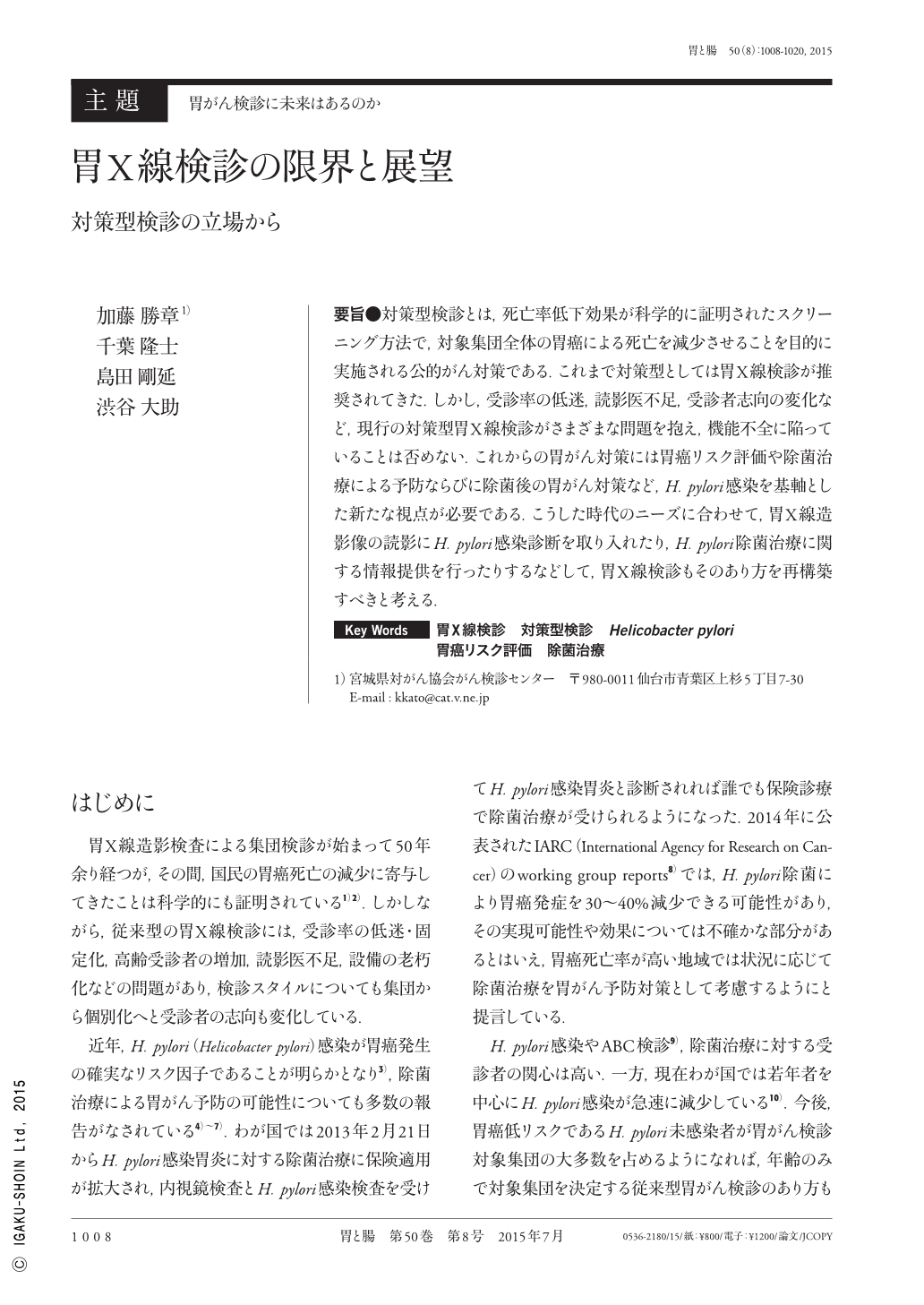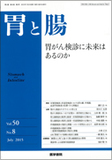Japanese
English
- 有料閲覧
- Abstract 文献概要
- 1ページ目 Look Inside
- 参考文献 Reference
- サイト内被引用 Cited by
要旨●対策型検診とは,死亡率低下効果が科学的に証明されたスクリーニング方法で,対象集団全体の胃癌による死亡を減少させることを目的に実施される公的がん対策である.これまで対策型としては胃X線検診が推奨されてきた.しかし,受診率の低迷,読影医不足,受診者志向の変化など,現行の対策型胃X線検診がさまざまな問題を抱え,機能不全に陥っていることは否めない.これからの胃がん対策には胃癌リスク評価や除菌治療による予防ならびに除菌後の胃がん対策など,H. pylori感染を基軸とした新たな視点が必要である.こうした時代のニーズに合わせて,胃X線造影像の読影にH. pylori感染診断を取り入れたり,H. pylori除菌治療に関する情報提供を行ったりするなどして,胃X線検診もそのあり方を再構築すべきと考える.
Population-based gastric cancer screening programs are public health policies aimed at gastric cancer prevention among target populations. The use of evidence-based screening programs is deemed necessary due to their scientifically proven effect on reducing gastric cancer mortality. Currently, radiographic screening, recommended by the Japanese guidelines, is performed as part of a nationwide screening program ; however, this program has suffered numerous issues, such as low screening rates, lack of diagnostic doctors, and non-attendance, among others. Continuation of the current situation could lead to the failure of this population-based program. Therefore, gastric cancer prevention policies need to be devised in response to public demand regarding H. pylori(Helicobacter pylori)infection including risk prediction, prevention by eradication, and detection of carcinogenesis following eradication. Reconstruction of the gastric cancer radiographic screening program is now required to increase the radiographic diagnoses of Hp infection and provide accurate information regarding the effects and limitations of eradication therapy for the prevention of gastric cancer.

Copyright © 2015, Igaku-Shoin Ltd. All rights reserved.


